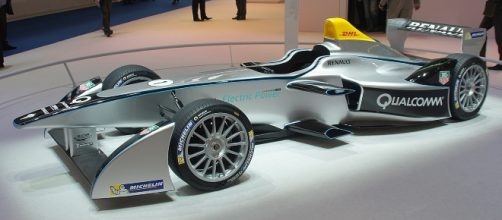Audi, Mercedes, and Porsche made stunning announcements recently: all three car racing powerhouses are leaving traditional series to move to Formula E, the Auto Racing series for electric cars, which was founded only three years ago. Ferrari is also seriously considering joining the bandwagon, most likely with their Maserati brand.
From skepticism to popular and established
Many people were skeptical of Formula E's chances of survival early on, but the series has matured into a popular series that allows car manufacturers to show their dedication to electric vehicles.
Clever marketing and leveraging the mass appeal of its sponsors have helped overcome the skepticism to establish Formula E as a popular, evolving, competitive auto racing series.
Humming engines are not for everyone
There are still die-hard, traditional race fans who feel that racing without sound cannot be considered "true racing." They want to hear the roar of the engines rather than the humming sounds of Formula E cars.
It cannot be denied that Formula E is exciting and it is not nearly as predictable as Formula 1 is, where you know one of six drivers will win the race.
With identical equipment, Formula E is a drivers series, with many different winners each season and with small details deciding races.
The man behind Formula E's success story
Alejandro Agag, the man who launched and has overseen the evolution of the Formula E series, deserves much of the credit for its success. Combining motorsport and the fight against climate change, he managed to attract many of the main car manufacturers and big name sponsors early on.
Part of the appeal of Formula E is that it features city-based racing. Quiet race cars driving around New York City, Paris, Hong Kong and other major cities make it more accessible for locals to get a taste of this new style of auto racing.
Many of the drivers have been in Formula 1 and are known by the public, bringing an established fan base into the series.
Impact on traditional auto racing series
Some of the long-standing auto racing series, such as the World Endurance Championship (WEC) and Deutsche Tourwagen Meisterschaft (DTM) are losing long-standing, popular brands to Formula E. Porsche is withdrawing from WEC, and Audi is pulling out of DTM after 18 years of contending for the championship each year.
There is intense pressure on car manufacturers to lower emissions and Formula E provides them with a great platform to publicly show their commitment. All manufacturers are developing electric cars.
Cost considerations
Cost also plays a role: according to The Guardian, a season in Formula E costs $6-12 million. Compared that to DTM ($60-80 million) or WEC (anywhere between $95-175 million), Formula E is a more appealing investment, with an environmental message.
Formula E attracts a different audience than the other auto racing series. This group may well be the next electric car customers for one of the big brands featured in the series.
What next: the future of auto racing
There will likely be a convergence of some sort between Formula E and Formula 1 in the future. Formula 1 has lost fans who feel it has become boring while Formula E is adding fans with each race. Many young people enjoy the Formula E series and this segment features the target customers of electric cars.
With the world embracing hybrid and electric, Formula E offers people a chance to can see first hand what electric cars are capable of on a track.


